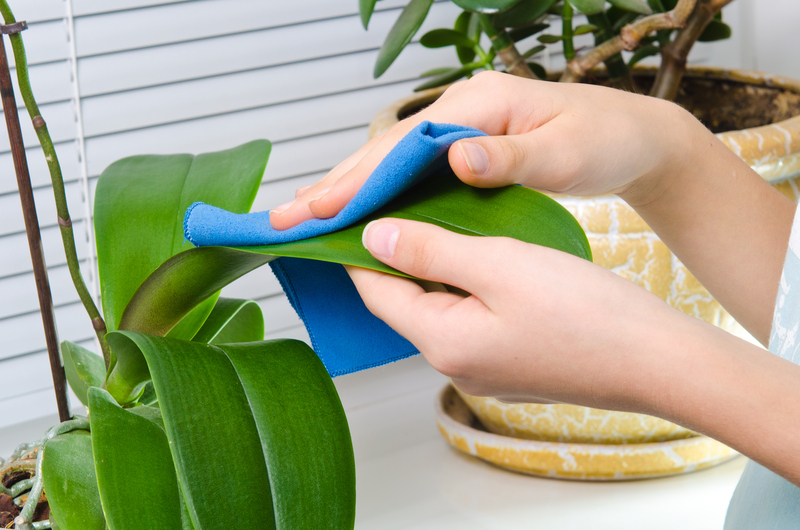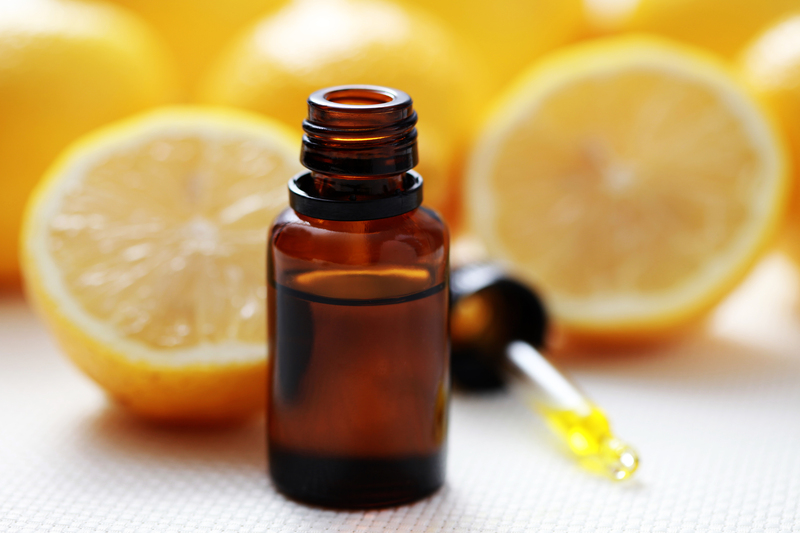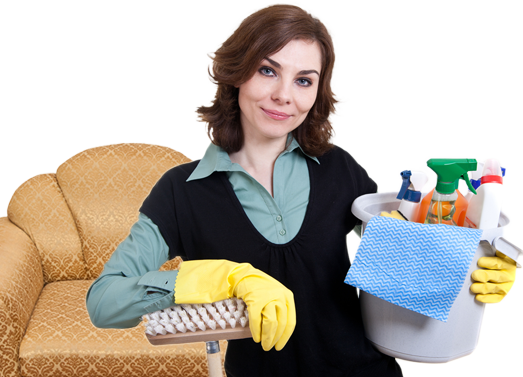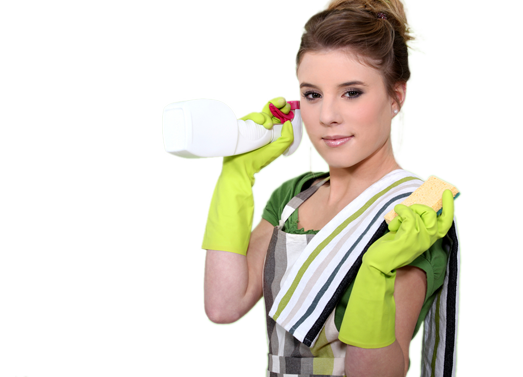Reclaim Pleasant Scents: Remove Pet Odors
Posted on 21/08/2025
Reclaim Pleasant Scents: Remove Pet Odors for Good
Our furry friends bring us endless joy, but sometimes, they leave behind odors that can make your home less inviting. Whether you're dealing with cat urine, dog dander, or that mysterious "pet smell" that never seems to fade, building a fragrant, fresh home is possible. In this guide, we'll detail effective strategies and products to remove pet odors and truly reclaim those pleasant scents you desire.

Understanding the Source of Pet Odors
Before you can eliminate pet smells effectively, it's important to know where they're coming from. Common sources include:
- Urine: Particularly potent and persistent, especially from cats and older dogs.
- Dander: Microscopic skin flakes that harbor scent and allergens.
- Saliva: Pets groom themselves constantly, leaving behind residues.
- Fur: Traps smells and acts as a carrier, especially when wet.
- Litter boxes, bedding, and toys: Everyday use can lead to unwanted odors.
Understanding the origin of these smells allows for targeted solutions rather than masking the odors temporarily.
The Science Behind Pet Odor Removal
Most pet odors are caused by organic compounds and bacteria. Effective odor control means not only removing the source but also breaking down the molecules that cause unpleasant aromas. Here's what you need to know:
- Enzymatic Cleaners: These use natural enzymes to break down proteins and organic matter, removing odors at the source.
- Baking Soda: Absorbs and neutralizes a wide range of smells.
- Activated Charcoal: Traps odor molecules in its pores.
- Vinegar: Counteracts alkaline odors like urine; leaves no lingering smells once dry.
Step-by-Step: Remove Pet Odors from Your Home
1. Locate and Treat Accidents Immediately
Fresh pet incidents are infinitely easier to handle than old, set-in stains. Blot up liquids (don't rub!) and use an enzymatic cleaner specifically formulated for pet messes.
- Blot, Don't Rub: Absorb as much urine as possible with paper towels or a clean cloth.
- Apply Enzyme Cleaner: Saturate the area and let it sit per directions--often 10-15 minutes or longer.
- Allow to Air Dry: These cleaners continue to break down odor even as they dry.
2. Address Set-In Odors in Carpets and Upholstery
With older pet odors, you'll need a more intensive approach. Deep clean carpets and furniture at least twice a year.
- Vacuum Regularly: Remove fur and dander with HEPA-filter vacuums.
- Deep Clean: Use a carpet cleaner with pet-specific solutions or hire a professional service with experience in pet odor removal.
- Baking Soda: Sprinkle liberally before vacuuming for extra freshness.
3. Hard Floors and Walls
Don't overlook non-carpeted areas! Pet accidents can seep into floors and baseboards.
- Tile, Vinyl, and Wood: Clean with a mixture of water and vinegar, followed by a rinse with clear water.
- Sealed Surfaces: Consider resealing or repainting if odors persist--especially for old, soaked-in areas.
4. Wash or Replace Pet Bedding and Accessories
Laundry is your friend here. Most textiles that your pet uses should be washed weekly.
- Hot Water: Use the highest safe setting to remove dander and bacteria.
- Vinegar or Baking Soda: Add to your regular detergent for a deodorizing boost.
- Replace Old Items: Sometimes, toys or beds are beyond saving--don't be afraid to toss and replace!
5. Maintain a Clean Air Environment
Pet smells can linger in the air, not just on surfaces. Take steps to reclaim air quality throughout your home.
- Air Purifiers: Especially those with HEPA and activated carbon filters work wonders against pet dander and odors.
- Ventilation: Open windows regularly to refresh indoor air.
- Houseplants: Some varieties naturally filter air and remove odors.
Pet Odor Removal Products That Work
The best products don't just mask pet smells--they neutralize and eliminate them. Here are top-rated choices:
- Enzyme-based Cleaners: Nature's Miracle, Rocco & Roxie, Simple Solution
- Baking soda-based Deodorizers: Arm & Hammer Carpet & Room Odor Eliminator
- Activated Charcoal Air Purifiers: Bamboo charcoal bags or air purifying boxes.
- HEPA Air Purifiers: Dyson, Honeywell, or Levoit with carbon filters
Natural DIY Methods to Remove Pet Odors
- Baking Soda Carpet Treatment: Sprinkle on dry carpets, let sit overnight, vacuum thoroughly.
- White Vinegar Spray: Mix 1 part vinegar with 2 parts water, lightly mist problem areas, and let dry.
- Lemon Juice: Cuts through odors with a fresh citrus scent (test on a small area first).
- Essential Oils: Lavender and eucalyptus are pet-friendly in dilute forms--never apply directly on pets!
How to Prevent Pet Odors from Returning
Prevention is crucial to maintaining a pleasant-smelling home. Consistency and a few new habits can keep pet smells at bay:
- Frequent Grooming: Regular baths and brushing minimize shedding and dander.
- Cleaning Schedules: Vacuum, mop, and clean litter boxes or cages routinely.
- Pet Diet: Healthy, high-quality food can reduce natural body odor.
- Health Check-Ups: Unusual or foul smells may indicate health issues--consult your vet!
- Tooth Brushing: Pets can have "bad breath" that permeates the house; brush teeth or provide dental chews.
Special Considerations for Cat Odor Elimination
Cats are notoriously sensitive and their urine is particularly pungent. Use these cat-specific odor removal tips:
- Choose the Right Litter: Clumping, odor-neutralizing clay, or natural litter types can help.
- Scoop Daily: Don't let smells build up.
- Litter Box Maintenance: Replace the litter and clean the box regularly with mild soap.
- Placement Matters: Ensure proper airflow where litter boxes are kept.
- Enzyme Cleaners for Accidents: Catching and treating out-of-box accidents quickly is essential.
Dog Odor Removal Tips
Dogs bring specific challenges--muddy paws, slobber, or even that "dog smell" after a rain. Here's how to beat it:
- Regular Baths: Use pet-safe, deodorizing shampoos.
- Wash Collars & Harnesses: These fabric items collect odor quickly.
- Paw Wipes: Clean paws after walks to keep floors and carpets clean.
- Ventilate Soft Surfaces: Sunlight and fresh air can help neutralize odors.
- Control Shedding: Use grooming gloves, deshedding tools, and wash pet beds often.

Persistent Odors? When to Seek Professional Help
Sometimes, even after diligent cleaning, unpleasant scents linger. This usually happens after repeated incidents or when odors have penetrated subfloors or behind walls. In these cases:
- Professional Carpet Cleaners: Use specialized equipment to penetrate deep into fabrics.
- Ozone Generators or Fogging: Professionals can treat entire homes for stubborn, pervasive smells.
- Home Restoration Experts: For severe cases, including damage to floors or drywall.
Don't hesitate to reach out--persistent pet odors shouldn't force you to live with unpleasant scents.
Final Thoughts: Reclaim Pleasant Fragrances and Enjoy Your Fresh Home
With a combination of proactive cleaning, effective products, and healthy habits, it's possible to reclaim pleasant scents in your home and remove pet odors once and for all. Your love for animals doesn't mean sacrificing a fresh, welcoming living space. If you're patient, persistent, and well-equipped, the only evidence of your pet will be wagging tails--not unwelcome aromas.
Quick Reference Summary
- Identify odor sources and treat immediately with enzyme cleaners.
- Regular cleaning prevents odors from embedding.
- Use air purifiers and improve ventilation for ongoing freshness.
- Laundry pet bedding and toys weekly.
- Maintain a cleaning routine for long-term odor prevention.
- Consult professionals for stubborn stains and smells.
Reclaiming pleasant scents and removing pet odors will not only improve your environment but will also make shared spaces more enjoyable for both guests and pets. Start today--your nose will thank you!





